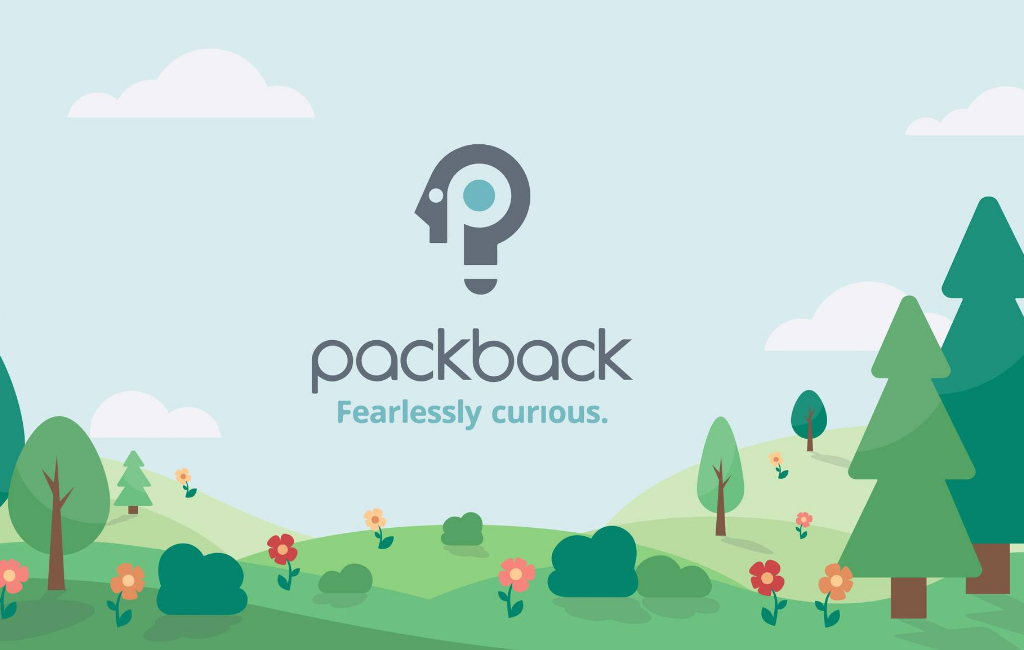Packback Books


DEAL
EPISODE SUMMARY
🕓 Air Date: March 21, 2014
Asking For:
$200,000 for 10%
Investor:
Mark Cuban
Deal:
$200,000 for 20%
PRODUCT SUMMARY
Packback Books is a website offering pay-per-use access to digital textbooks, providing students with affordable and immediate access to required course materials.
WATCH HERE
IN A RUSH?
Click these to jump to the section you want to read.
Background Story
Packback Books, founded by Kasey Gandham and Mike Shannon, is headquartered in Chicago, Illinois. Kasey and Mike, both Chicago natives, shared a common experience during their college years: the burden of exorbitant textbook costs. This firsthand experience sparked their entrepreneurial journey to disrupt the traditional textbook industry and make education more accessible. Kasey Gandham brings a background in computer science and entrepreneurship to the table. His passion for innovation and problem-solving led him to co-found Packback Books, where he serves as CEO.

Mike Shannon, with a background in business and finance, complements Kasey’s skill set as the co-founder and COO of Packback Books. Together, they combine their expertise to drive the company’s vision forward. The idea for Packback Books emerged from the founders’ frustration with the skyrocketing prices of textbooks and the financial strain it placed on students. They recognized the need for a more affordable and accessible solution that would empower students to access required course materials without breaking the bank.

Drawing inspiration from emerging trends in digital content consumption and micro-transactions, Kasey and Mike conceptualized Packback Books as a platform offering pay-per-use access to digital textbooks. Their shared vision and determination led them to develop Packback Books, a website that revolutionizes the way students access and pay for textbooks. Through strategic partnerships with major textbook publishers and a commitment to innovation, Packback Books aims to alleviate the financial burden on students and promote educational equity.
The Product
Packback Books offers a revolutionary solution to the high cost of textbooks by providing students with affordable and flexible access to required course materials. The platform operates as a user-friendly website where students can easily browse and rent digital textbooks on a pay-per-use basis.
To access textbooks on Packback Books, students simply log in to the website and search for the titles they need. Once they find the desired textbook, they can rent it for a specified duration, typically priced at $5 or less per day. This flexible rental model allows students to access textbooks for as long as they need them, without the burden of purchasing expensive physical copies.
Packback Books’ digital textbooks come equipped with features designed to enhance the learning experience. Users can highlight important passages, take notes, and easily navigate through the text using intuitive navigation tools. The platform also offers search functionality, making it easy for students to quickly find specific information within the textbooks.
One of the key benefits of Packback Books is its affordability and accessibility. By offering textbooks on a pay-per-use basis, the platform eliminates the need for students to invest large sums of money upfront to purchase textbooks they may only need for a short period. Additionally, Packback Books’ digital format means that students can access their textbooks anytime, anywhere, using any internet-enabled device.

How It Went
The company’s position before Shark Tank
Packback Books has made significant strides in addressing the challenges faced by students in accessing affordable textbooks, positioning itself as a promising player in the educational technology sector. The company has entered into licensing agreements with major textbook publishers, securing access to approximately 25-30% of textbooks used on average college campuses. These partnerships enable Packback Books to offer a diverse range of course materials to its customers.

As for its customer base, Packback Books primarily targets college students who are seeking affordable and flexible options for accessing required course materials. The platform’s user-friendly interface and pay-per-use model appeal to students looking to minimize their textbook expenses while maximizing their academic success. In terms of funding, Packback Books has secured investments from various sources to support its growth and expansion efforts. While Packback Books has demonstrated strong potential for growth, it also faces challenges, particularly in negotiating agreements with publishers and managing its profit margins.

The company operates on a revenue-sharing model, with publishers receiving 75% of revenue generated from textbook rentals. This arrangement impacts Packback Books’ profitability and requires careful financial management to ensure sustainable growth. In terms of its organizational structure, Packback Books is led by co-founders Kasey Gandham and Mike Shannon, who serve as CEO and COO, respectively. The company’s team comprises individuals with diverse backgrounds in technology, education, and business, all united by a shared vision of making education more accessible and affordable.
The Negotiations:
During the negotiations on Shark Tank, Packback Books sought $200,000 in exchange for a 10% equity stake in the company. Mark Cuban, impressed by the concept but feeling that 10% equity was insufficient, countered with an offer of $250,000 for a 20% equity stake. This offer reflected Cuban’s belief in the potential of Packback Books but also his desire for a larger share of ownership. After some deliberation, Packback Books accepted Cuban’s offer, securing a valuable investment that would fuel the company’s growth and expansion efforts.

However, there was a moment of confusion during the negotiation process when Cuban initially offered $250,000 for a 20% equity stake, to which Packback Books accepted. But then, Cuban clarified that he had intended to offer $250,000 for a 20% stake, which was the same valuation but with a larger investment. Despite this momentary misunderstanding, the deal was ultimately closed, with Cuban providing the agreed-upon investment in exchange for a 20% equity stake in Packback Books.

Overall, the negotiations showcased Packback Books’ ability to attract investor interest and secure a significant investment to support its growth trajectory. Despite the initial confusion, both parties reached a mutually beneficial agreement that would enable Packback Books to continue revolutionizing the textbook industry and making education more accessible for students.







